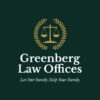If unsafe conditions exist on a property owner’s land, the property owner may be legally responsible for any injuries visitors sustain as a result of those unsafe conditions. Premises liability includes many different types of accidents including those involving slip and falls, swimming pools, construction sites, falling equipment, fires, animal and criminal attacks, and inadequate or negligent security.
Elements of a Premises Liability Claim
Although the elements of a premises liability claim will vary somewhat among states, a plaintiff will generally have to prove the following elements:
- The defendant owned, occupied, or leased the property
- The defendant was negligent in their use of the property
- The plaintiff suffered harm
- The defendant’s negligence was a substantial factor in causing the plaintiff’s harm
A plaintiff must prove that the defendant owned, occupied, or leased the property on which the plaintiff was harmed to establish that the defendant had a duty to inspect the property and to ensure that it was in reasonably safe condition for its intended use.
To prove that the defendant was negligent in their use of the property, a plaintiff will have to establish that the defendant failed to use the standard of care that a reasonable person would in the defendant’s circumstances.
To prove that the defendant’s negligence was a substantial factor in causing the plaintiff’s injuries, the plaintiff must show that the harm they suffered was a reasonably foreseeable consequence of the defendant’s action or inaction. While the defendant’s negligence does not have to be the sole cause of the plaintiff’s injury, it must have materially contributed to the injury.
You should be sure to check the laws in your state for the precise premises liability claims there. A local lawyer will be a valuable tool to have in order to make sure your best interests are protected.
Liability Based on the Status of the Person on the Land
Usually, the defendant’s liability depends upon the status of the plaintiff entering their property. There are three “statuses” — invitees, licensees, and trespassers.
An invitee is a person who is on the defendant’s property for the defendant’s financial benefit or who is on land that is open to the public. A defendant owes a duty of reasonable care in maintaining their property and making it reasonably safe to invitees.
A licensee is someone who has express or implied permission from the defendant to be on their land, such as a social guest. A defendant owes a duty to licensees to repair or warn of concealed dangerous conditions which the defendant is aware of, but which the licensee is not.
A trespasser is a person who enters or remains on another’s land unlawfully. The defendant owes no duty of care to trespassers other than not to willfully harm them.
However, some states now use only an ordinary negligence analysis without considering the status of the plaintiff. In these states, a defendant owes a duty to warn land users of known and latent dangers which are not known to land users and which land users could not reasonably discover on their own. This includes dangers that the defendant should have discovered if he or she exercised reasonable care.
Contact a premises liability lawyer for their insight on premises liability.

